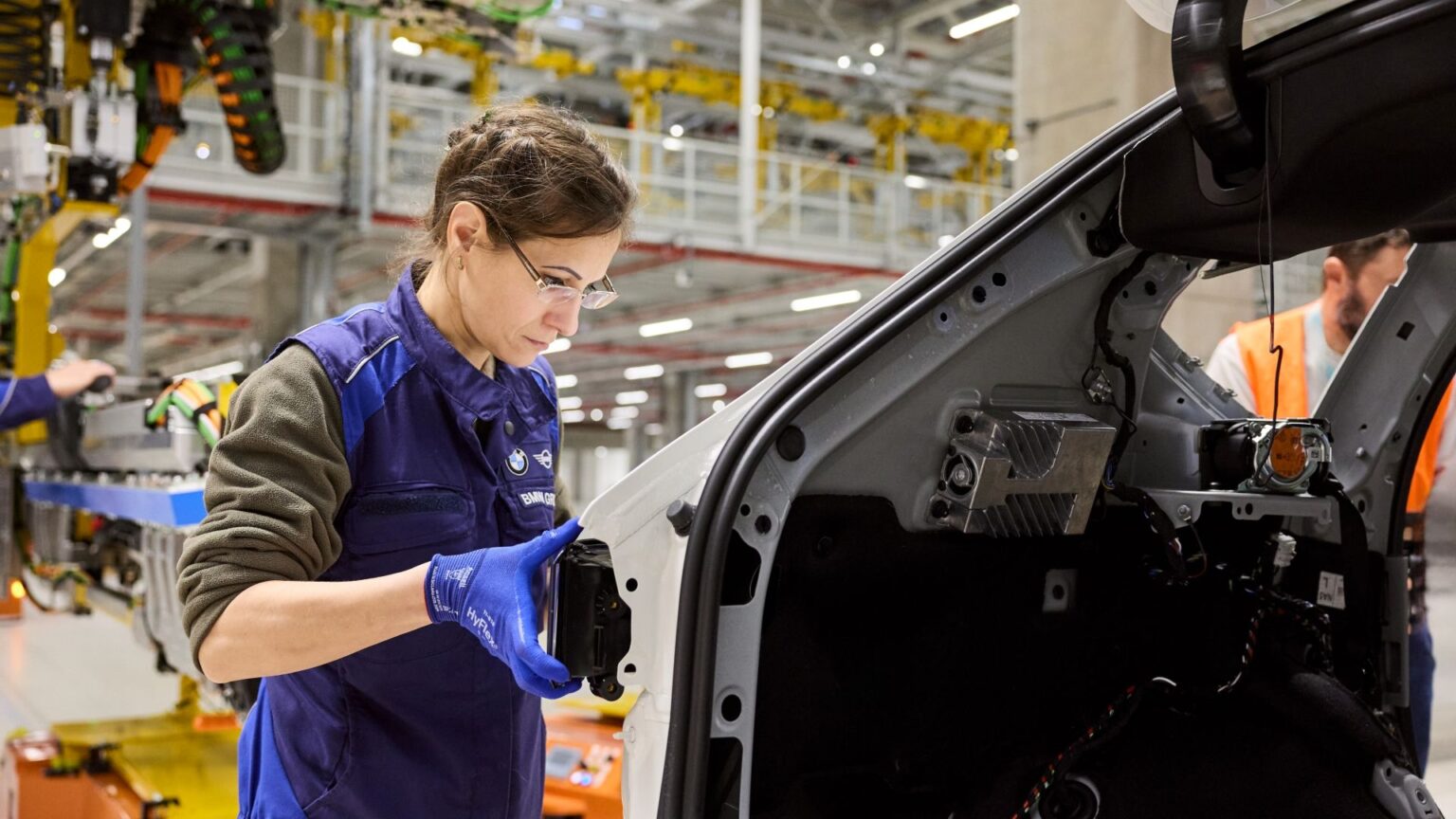BMW’s upcoming Neue Klasse – that’s German for “new class” – vehicles are really living up to the name. Once it hits its stride, this electric vehicle platform is expected to underpin a range of different models including at least a 3 Series-sized sedan, and a similar SUV, the iX3. Right now, this Munich-based automaker is working to get that utility vehicle into series production, and lots of clever engineering is streamlining what is almost an unimaginably complex process.
Easier Assembly, Dramatically Reduced Wiring
Yep, building cars is extremely difficult, a job that requires thousands of people with myriad fields of expertise, not to mention numerous outside supplier companies. As for the upcoming iX3, it will be assembled at BMW’s factory in Debrecen, Hungary. Mass production is scheduled to commence late in 2025, though ramping up to that, the assembly line and workers have begun building prototype models. This helps people learn the required processes and allows any potential issues to be identified and corrected before full production commences.
Easing the burden for assembly line workers, BMW engineers have done some clever work that improves efficiency. The wiring harness, for instance, is broken into several separate sections instead of being one continuous component. This makes everything easier to install, more ergonomic, and supposedly also results in fewer electrical connections.
Similar modularization has been used elsewhere in the iX3. Many smaller components are brought together into larger assemblies, reducing connections, and eliminating various plugs, screws, and clips, which lowers complexity, cost, and can even reduce weight.
Aside from that, the iX3’s so-called zonal wiring harness also requires 1,967 fewer feet (600 meters) of wire than older designs. This reduces the weight of the wiring harness by a whopping 30 percent, and less weight is always a good thing, no matter the vehicle.
Further streamlining assembly, BMW is performing a range of quality checks digitally as vehicles roll down the assembly line. After testing this in Debrecen, the technique will be implemented in other facilities, starting with the company’s home factory in Munich, likely starting in 2026.
Debrecen Is Leading The Charge For BMW
In a media release published by BMW, Hans-Peter Kemser, managing director of the Debrecen plant said, “Our highly efficient and ergonomic assembly line immediately started running without any issues.” The executive also explained, “We achieved this thanks to virtual planning and tests, as well as the outstanding collaboration between our new, highly motivated employees in Debrecen and our experts within the BMW Group’s global production network.”
The German luxury automaker is still learning the vagaries of assembling the new iX3 all-electric SUV. Production is expected to fully ramp up later this year, aided by the Debrecen factory, which was specifically setup for producing battery-powered vehicles. Reinforcing its green credentials, this facility will be the first BMW factory to run entirely without fossil fuels during normal operation.
Read the full article here


